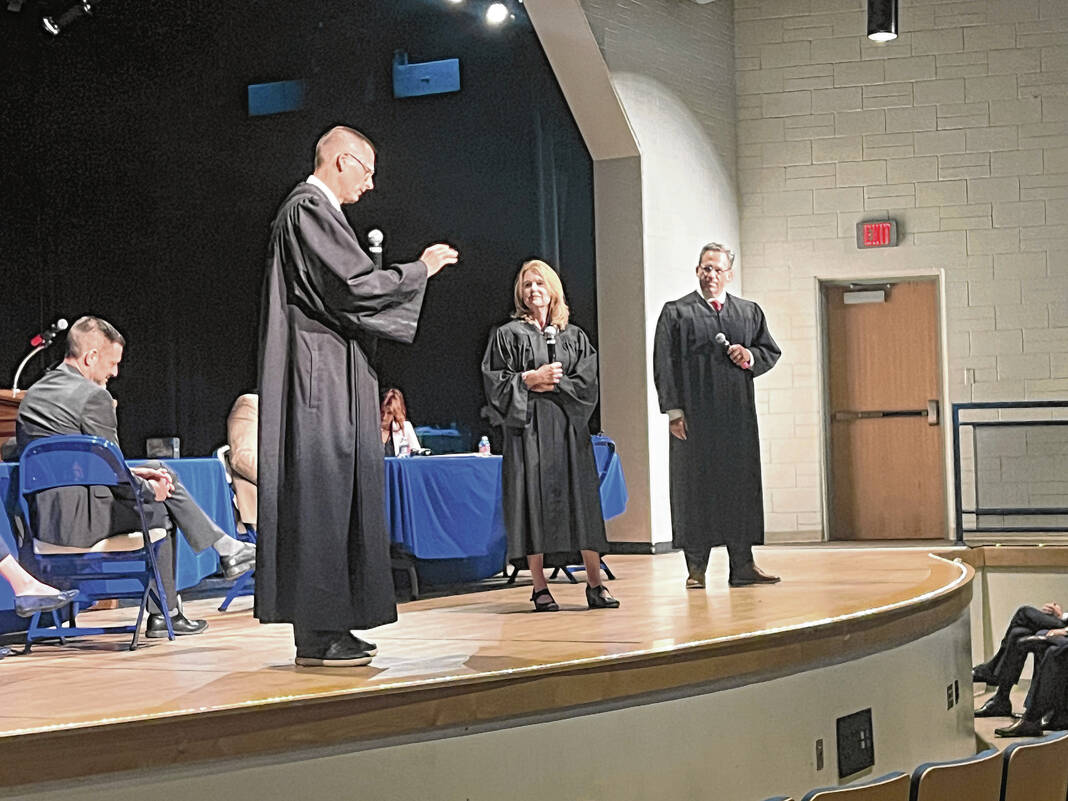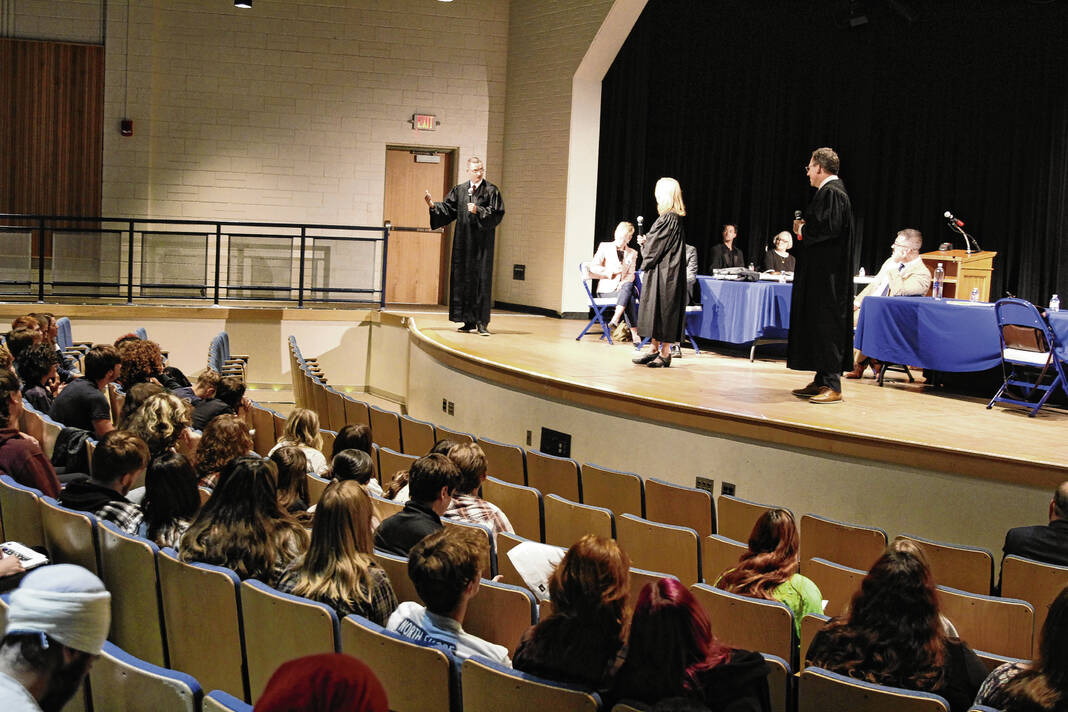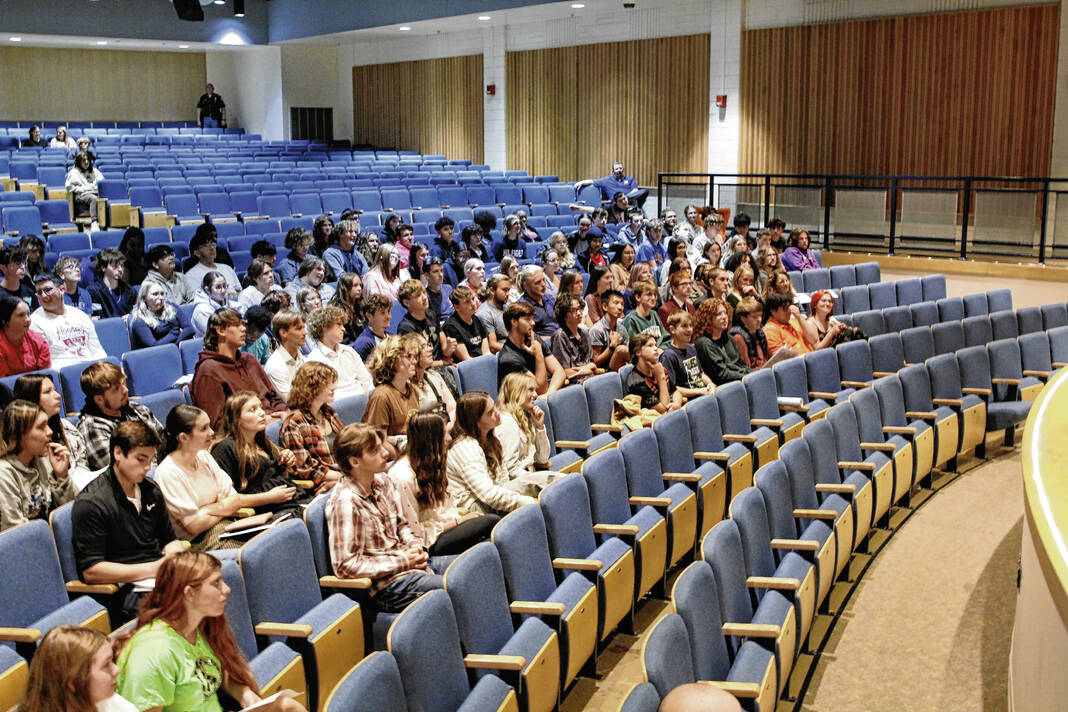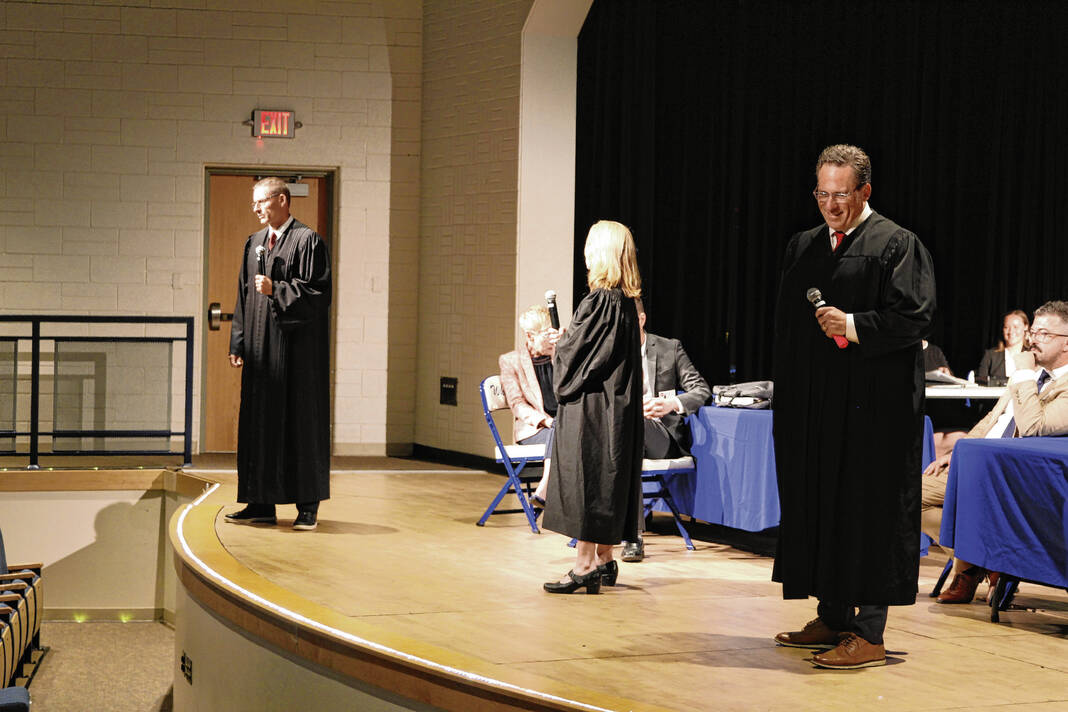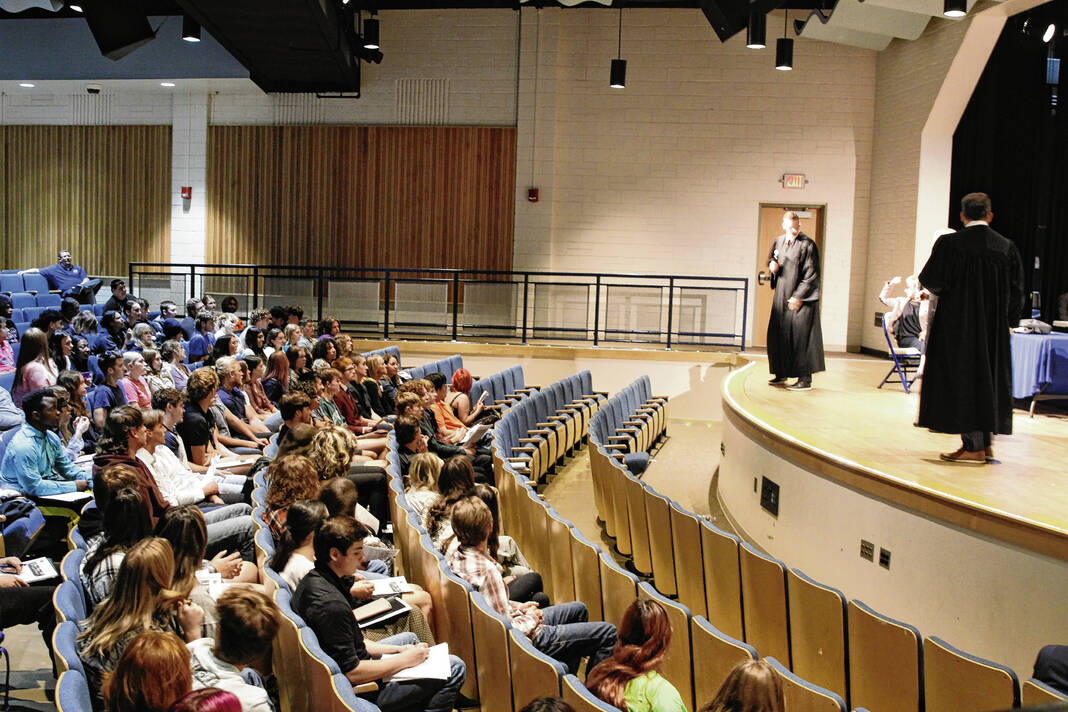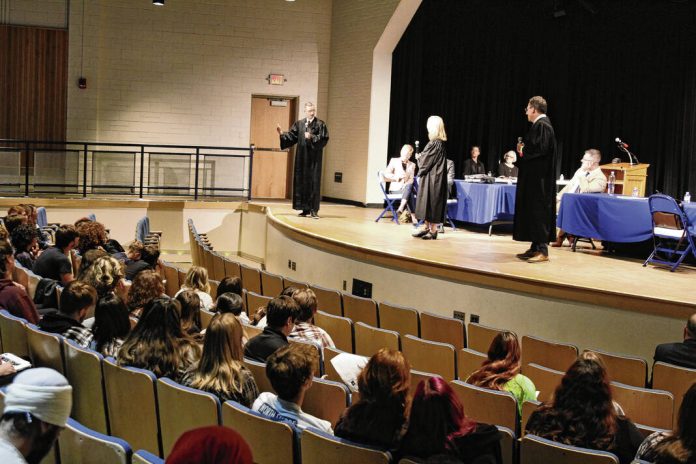
The Indiana Court of Appeals visited Whiteland Community High School on Wednesday for a traveling oral argument through their Appeals on Wheels outreach program. Students heard live, in-person arguments followed by a Q&A with judges. Jayden Kennett | Daily Journal
Under the auditorium’s lights, students watched as the judges listened to attorneys argue the merits of an appeal.
The case that unfolded before students at Whiteland Community High School and a three-judge panel of the Indiana Court of Appeals was from Delaware County. Attorneys for Nathan Jordan — who was convicted of neglect of a dependent resulting in death, three lesser counts of neglect of a dependent, battery and driving while suspended — were appealing his conviction and 41-year sentence claiming, among other things, that the evidence is insufficient to prove he committed neglect of a dependent resulting in death.
His attorneys say Jordan proved he acted in self-defense and the trial court improperly restricted the jury’s consideration of that defense. They also allege that prosecutorial misconduct amounting to a fundamental error occurred during the prosecution’s closing argument to the jury.
Jordan’s girlfriend was driving a van carrying Jordan, their toddler and his girlfriend’s other three children — ages 3 to 6 — when the van crashed and flipped on a highway, killing her oldest child. Jordan had been driving before his girlfriend, who had been drinking alcohol, took the wheel. Two of the children lacked proper child restraints at the time of the crash, according to court documents.
For 40 minutes on Wednesday, students in Kaitlin Holton’s 12th grade U.S. government class at WCHS, along with students from Brown County, got to watch the court hear the appeal from Jordan’s attorney, Scott Stephen Mandarich, and the state’s response as part of the court’s “Appeals on Wheels” program. WCHS student Anthony Huff was even given the chance to take part in the hearing directly, acting as a student bailiff for the court hearing.
Appeals on Wheels is the court’s award-winning civics education outreach program, during which the audience has a chance to ask the judges questions about the judiciary following the argument; however, judges are unable to speak about the specific case. The program began informally in the 1980s before being formally established in 2001.
Once the hearing was over, the question-and-answer session with Judges Leanna K. Weissmann, Peter R. Foley and Paul A. Felix quickly began. Questions from students ranged from whether judges can be called for jury duty — the answer is yes — and if they’ve ever met a U.S. Supreme Court justice. None of them had, but Weissmann and Felix had a chance to watch a Supreme Court hearing in person last year in Washington, D.C.
One student asked how judges feel about putting people in jail. Judge Paul Felix, a Whiteland graduate and the newest member of the court, said judges are not “gleeful” about putting someone in jail. Judge Peter Foley told students that judges take an oath to uphold the law and that the penalties given to offenders are on behalf of the whole state, not as retribution to a particular victim.
The judges were also asked whether there have been physical fights in courtrooms before. It does happen, but it’s rare, Foley and Felix said, recounting their time as trial court judges. Foley added that a trial courtroom can be “very emotional” and people feel the weight of a person’s life on the line.
They were also asked if they had ever had a hard time deciding a case. Felix told the students the judges usually sit down and talk about the case to come to a resolution. For Jordan’s case, they were going to do it later when they weren’t at the high school.
One question was even asked to Mandarich, Jordan’s attorney. A student asked Mandarich if he ever felt bad for representing a defendant, and he replied that he tried not to let his personal judgment interfere.
“My job is to provide the best possible defense,” Mandarich said.
The reaction from students is typical for what the court usually sees with the Appeals on Wheels program, said Anne Fuchs, the court’s communications director. Sometimes the reaction ranges; there have been times where they’ve been there for an extra hour, time permitting, to answer students questions because they’ve never dealt with the court system or met a judge, Fuchs said
“Most people, knock on wood, have never been in court, so it’s a very, very new experience for them,” she said. “Then for those who have, this is an opportunity for us to create better memories. Sometimes an experience in a courtroom can be very stressful, or your family might be involved. That’s an unpleasant day. This is our chance to show you how the judiciary works in a pleasant, kind of open way that you can understand.”
It also shows that the court is “working for the people of Indiana,” Fuchs said.
“It’s working hard to make the state a fairer better place to live, and we truly have a system of justice that can be trusted,” she said.
For Judge Felix, this iteration of Appeals on Wheels was a chance for him to come back to his alma mater. The 1983 graduate was amazed to see how much the school has changed, both in terms of size and diversity, he said.
The questions he heard from the students were what he expected, Felix said.
“They’re very thoughtful. They asked us to provide insight into our jobs and how we’re able to manage or cope with the difficulties of the job,” Felix said. “… It’s just a great outreach that the court is able to do for the community. Some civic education to actually see a real court process happening right in front of the eyes.”
Holton was also excited to see the program come to WCHS. It is “super beneficial” for students to be see the real life processes in government, she said.
“This is an experience that unless they actually do get arrested and go through the Court of Appeals process, they may never be a part of or witness because there is no jury for this part of the process,” Holton said.
Huff, the WCHS student who was able to take part in the hearing as a bailiff, found the experience interesting. He was approached by Holton to take on the role ahead of the hearing because he has an interest in pursuing a law enforcement career, if dancing doesn’t work out, he said.
His major takeaway was how much the facts matter and how everyone — the judges, the state and the defense — relied on them more than their beliefs.
“They had facts more than just beliefs, and I feel like that definitely made the entire court run smoother and better than just believing what you thought,” Huff said.


